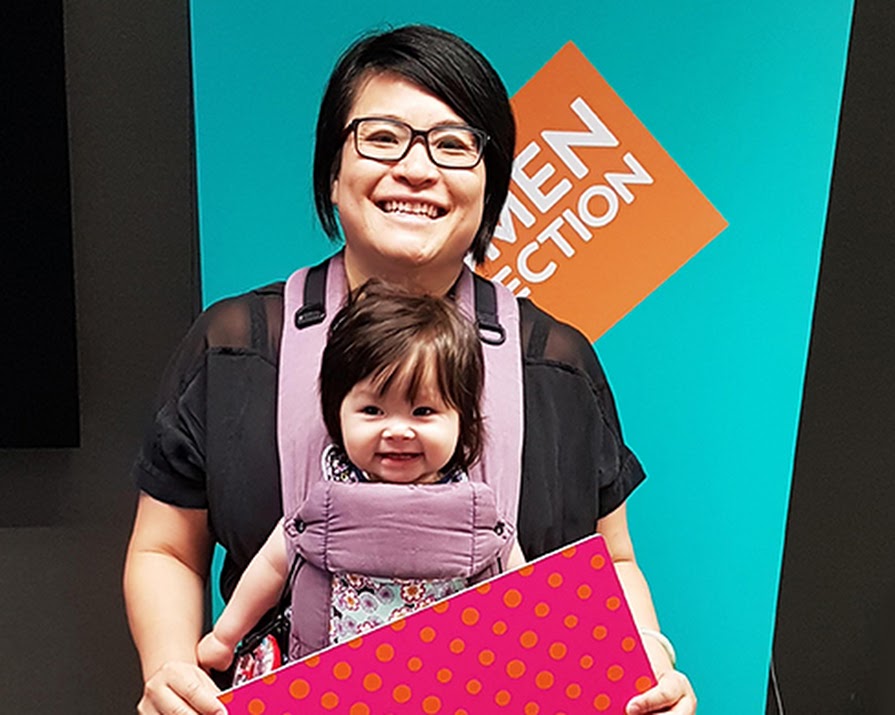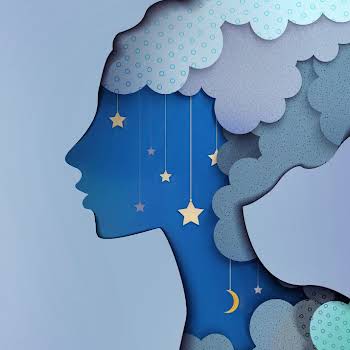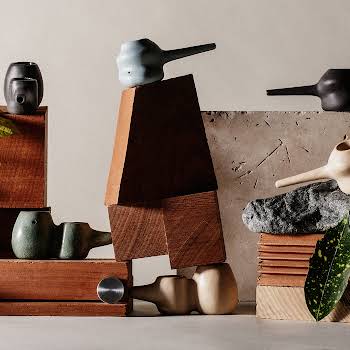
Women in politics: Hazel Chu could be the first ever Irish Born Chinese politician to be elected in the Irish State
By Niamh ODonoghue
22nd Dec 2018
22nd Dec 2018
Hazel Chu – formerly Head of Communications with Diageo – hopes to be the first ever Irish Born Chinese politician to be elected in the Irish State so she can be a voice for the 90,300+ immigrants living here.
In May 2019 there will be local elections across Ireland to elect public representatives to City and County Councils. One-in-eight of our population are migrants, but our political makeup is not reflective of this. Just three out of 949 Irish councillors (0.2%) are from a migrant background, and an even smaller proportion are immigrant women. However, migrants have been allowed to vote in local elections since 1963 and, and have been allowed to stand for local election since 1974. Yet despite this, the level of migrant participation in public life and politics is not represented. So who will stand for the 90,300+ immigrants living here?

Hazel Chu
Growing up, Hazel Chu knew she was different from her classmates. Though she sounded like them and was born in Ireland, she didn’t look like them which isolated her. Hazel is a second generation immigrant, born to parents from Hong Kong who moved to Ireland in the 7os to secure a better future. Her parents both worked in kitchen jobs before buying their first business in the form of a chip van, her mother went on to own four restaurants around the Kildare-Dublin locality. Chu became the first person in her family to attend college and went on to become the first Irish-born Chinese to be called to the Irish Bar in 2007.
If elected, Hazel Chu will be the first ever Irish Born Chinese politician to be elected in the Irish State. Over the phone, Hazel tells me about her aspirations as a politician, what it means for her infant daughter, and what can be done to help immigrants to be more included in politics and public life.
Some answers have been shortened and edited for the purpose of this interview.
You’ve had a successful career that spans from music and law to corporate trade and communications. When and why did you decide to pursue a career in politics?
I was politically active throughout college, but when I started my career I had less time to be involved in politics. That was until I met my now-husband, Councillor Patrick Costello, who wanted to run in the local elections at the time. We ran for the 2014 elections and were persistent with on-the-ground campaigning, and I did everything from his social media, to pitching to press and door-to-door canvassing. He topped polls that year and that spurred me on to think, “oh, I’m really good at running campaigns”. Afterwards, I got involved in my local party running different campaigns as well as acting as their chair of the executive. I also became one of the founding chairs the party’s women’s group and recently became their spokesperson for enterprise for the party. Running for election is the next natural course of action.

Source, Facebook
You’re running for local elections in May 2019. What do you hope to achieve?
My immediate local aim is for a more vibrant, inclusive and active community. I want to see inclusivity across the board, no matter on gender or race. There are 4.7 million people in Ireland. Of the population, approximately 50 per cent are female. Twenty-two per cent of the Dail is women. Thirty per cent of the Seanad are women. Twenty-one per cent of the Council is women. That’s simply not good enough. We need more women for a better share of voice.
On a national level, I want to help to lobby for preventative healthcare. The country needs a healthcare reform and better funding for preventative services.
Lastly, we simply must do better when it comes to climate change.
International research has found there are three main reasons why people do not participate in politics: Because they do not want to; Because they cannot; or Because they do not know how. What do you say to that?
Migrants – as well as nationals – suffer the same problem when it comes to politics because its seen as a very elitist game. Many migrants come from a working background and they simply don’t have the education or skills to be able to participate.
For the don’t want to part, I would say that it’s in our nature to give out, particularly for members of the community who haven’t fully integrated into Irish culture, but the only way they can do anything is if they take a step in the right direction and change what’s making them unhappy.
I think the ‘cannot’ is a very real barrier. One of the things politicians have to do is try to get immigrants involved more. Take direct provision centres, for example: When a centre is set up, one thing that could help is helping people to understand the lay of the land and the system better. In schools, there should be classes politics so they can start learning from an earlier age. We also need to give support like language classes so that people can be better integrated into the community. A lot of immigrants, especially in direct provision, don’t have any connection to the outside world so find it hard to get involved or make any changes. That means you’re perpetually stuck in a system where you cannot help yourself.
What is the entry process into politics like? Is it difficult?
The entry process is difficult. Many migrants come from lower-socio-economic backgrounds and don’t have the financial means or luxury to go and be involved in politics. A lot of times, it doesn’t take a lot of money but it does require time and courage. Many migrants don’t want to be scrutinized going door-to-door either, which can often result in unwarranted bouts of racism and unwanted attention.
One misconception, I think, is that people believe they have to be part of a particular party in order to be involved. You don’t. All you need is a cause and an interest, the party is an afterthought. So, find your cause, find your interests, then find your party. There’s also the belief that “someone else will do it”. But when you have the same people doing the same job, in the same party, making the same decisions, you’ll never have any change whatsoever.
Migrants are a permanent feature in Irish society. Are there any political training programmes here tailored for migrants? How can migrants feel more politically included in the community?
The Immigrant Council of Ireland provides training courses across the country to ensure people from an immigrant background’s voices are heard and represented. It deals with issues like integration, immigration reform, human trafficking, child migration, racism and the refugee crisis. This section of the website is tailored for immigrants to learn how to register to vote for the May 2019 elections. I hope to start a Women for Election training course with the Immigrant Council too.
The Migrant Mobilisation Conference is a newly organised gathering to promote migrant participation in politics by providing a platform for mutual learning. The event aimed to get more people with migrant backgrounds involved in local politics, as well as to increase engagement between the migrant community and those already involved in the political system.
There’s also the Akina Dada wa Africa, AkiDwA (Swahili for sisterhood), was established in 2001 by a group of African women to address isolation, racism and gender-based violence experienced by immigrant women.
Women For Elections inspires and equips women to succeed in Irish politics too, and provides lots of learning opportunities, master classes and networking events to help women.
You’re a new mum. Are you worried about how people will treat my Irish-born Chinese daughter and if she has the same experiences as you did growing up in Ireland, thirty years later?
People talk about immigration and immigrants in the country as if its something that they don’t want. If you look at recent polls, it shows that much of the country is open to being more inclusive and diverse, so my hope is that Ireland will be a more inclusive and diverse place for Alex. The only way that I can show her that it can be this way is if I’m a part of the community and wider fabric of Ireland creating space for conversations about migrants. The best way to do that is to get directly involved in politics and in the decision-making process.
Being a child of Chinese parents I experienced a good deal of racism. And the recent presidential campaign, in particular, showed me just how many racist people came out of the woodwork. When the recent televised Presidential debates began to get really heated I thought “Crap, this is going to affect Alex [my daughter]”, and how Ireland is changing is going to directly affect her.
My daughter looks exactly like me and no matter where she goes she’ll be asked where she’s from. And when she says she’s from Ireland she’ll then be asked where she’s ‘really’ from.

Hazel Chu and daughter Alex
What are your thoughts on direct provision?
Direct provision is a horrific system. It only perpetuating two things: it’s restricting someone’s liberty but also it’s pushing out a sentiment that immigrants are coming to this country and sponging off the state.
People in DP are not allowed work and have to be present for meal times or risk not eating that day. So if, for example, a mother of four is trying to better herself and educate herself on local politics, but misses mealtime at the centre, she has to use her already dire allowance to feed herself which might leave her short for baby supplies or hygiene products. My question is, for €21.60 how many meals can you get out of that? DP tells a person that they cannot earn their own keep, it tells a person that they don’t have freedom and you’re telling them their only worth €21.60 a week. I believe that someone in thirty year’s time will be apologising for how awful director provision was and how we came to this system.
As a middle-class, working woman, I can go to meetings, meet people and dedicate time to politics, without sacrificing anything else financially. Whereas, a lot of migrant families, especially in direct provision, don’t have these luxuries. They know if they attend X they will be sacrificing Y; and in many cases, that Y is a hot meal or child care.
Follow Hazel Chu’s political journey at @hazelchu on Twitter and through The Green Party website here.






















